Sistah Space demand justice for Black women affected by domestic abuse
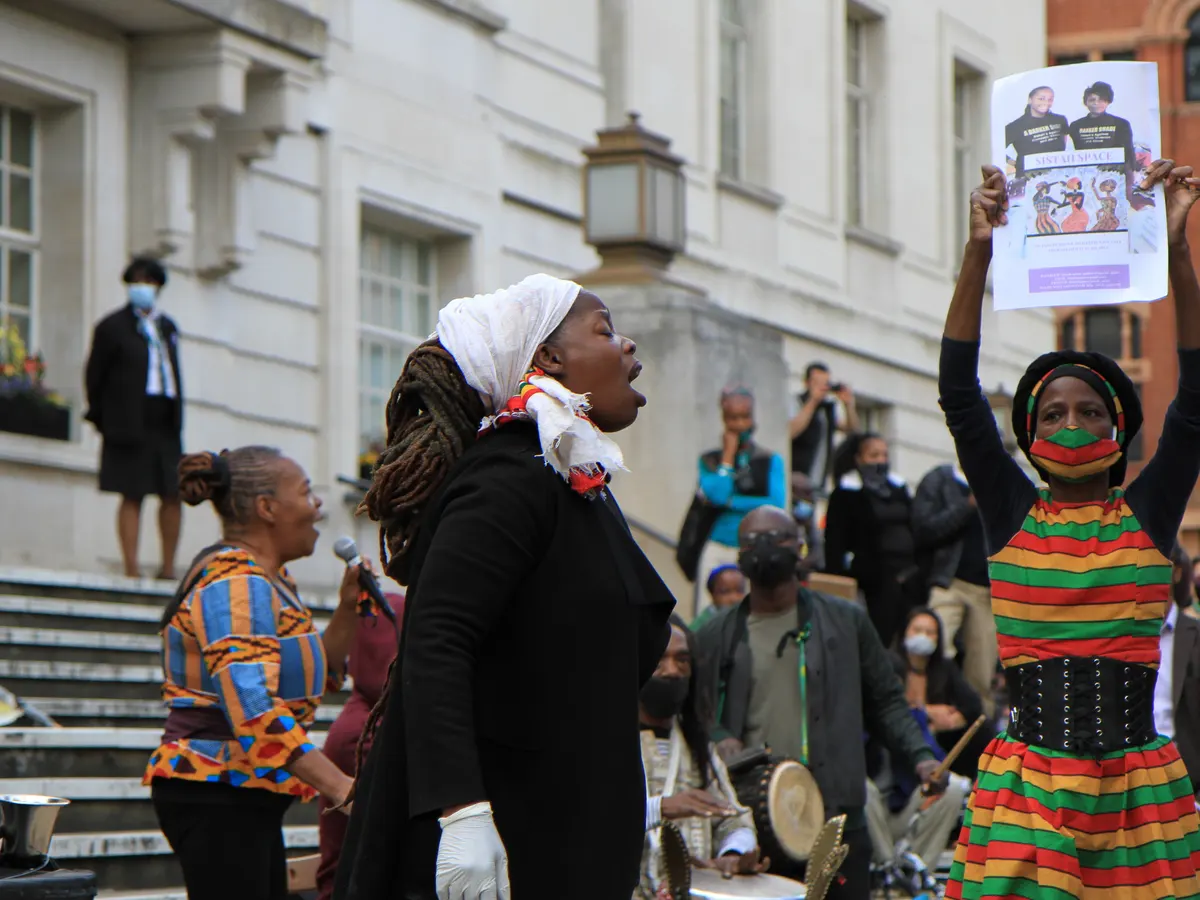
The “Valeries’s Law” petition by community organisation and charity Sistah Space was signed by over 100,000 people and has now been debated in Parliament. But Sistah Space continue their fight.
2 years on from Hackney Council forcibly removing safehaven Sistah Space from its home in Mare Street, Hackney, amongst the local African and Caribbean community, we are still left to ask, where did all the space go? With rising costs of living and lack of adequate rental spaces, physical spaces which Black women and femmes have relied on for their safety continue to diminish. Black women continue to go unnoticed in an already failed system, only receiving this necessary comfort and refuge from their own communities.
Sistah Space is a grassroots and community-led organisation, set up following the tragic murder of Valerie Forde and her baby RJ. Valerie Forde and her 23-month-old daughter were murdered by her ex-partner in 2014, 6 weeks after Valerie reported her ex-partner’s’ threats to the police, and these were carelessly recorded as threats to property, rather than to their lives.
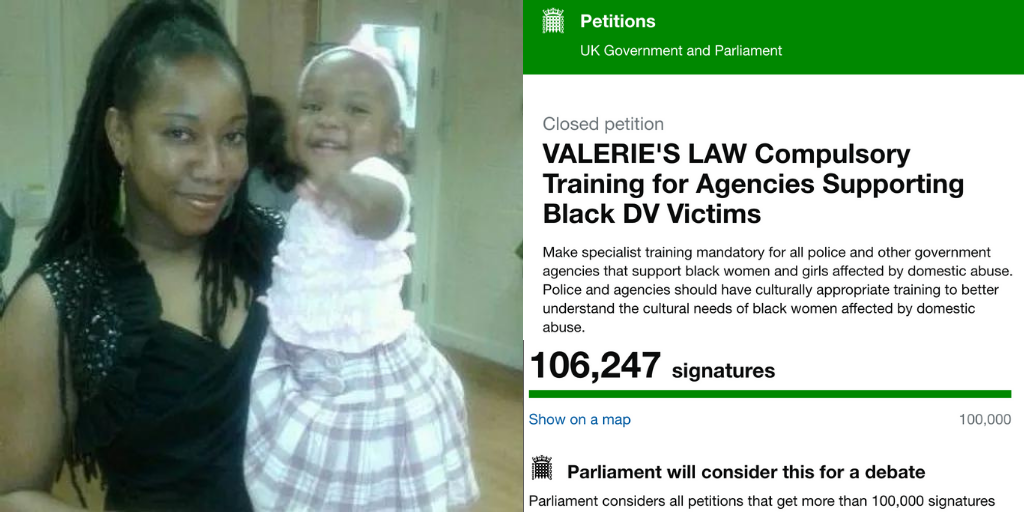
During the past 2 years of the pandemic, cases of domestic violence have continued to rise drastically. Domestic violence organisation Refuge reported an average of 13,162 calls and messages to its National Domestic Abuse helpline, between April 2020 and February 2021; a 60% increase from the average number of monthly contacts at the start of 2020.
With little attention to the intersection between gendered and racial violence, black women continue to experience this form of violence at a much higher rate: according to Sistah Space, 86% of Black women have either been a victim of domestic abuse or know a family member who has been assaulted. “There’s never been a moment in our society where there’s been a reckoning with the particular kinds of violence that’s meted out against Black women,” said Kimberle Crenshaw, intersectional Black feminist legal scholar.
The high profile, traumatic murder of Sarah Everard at the hands of a Metropolitan Police officer in March 2021 was a testament to what Sistah Space, and community organisations alike, have long been campaigning about. There are not just ‘bad apples’. This is a system built on injustice, misogyny and sexual violence. Reform, therefore, is not enough. Reform does not go far enough to address the current system that leaves women, femmes and girls in a constant state of precarity and danger. Sistah Space is an organisation that shows us what a new system, built on community care and welfare, could look like. Sistah Space imagines a society beyond what Black women and femmes have been told they deserve.
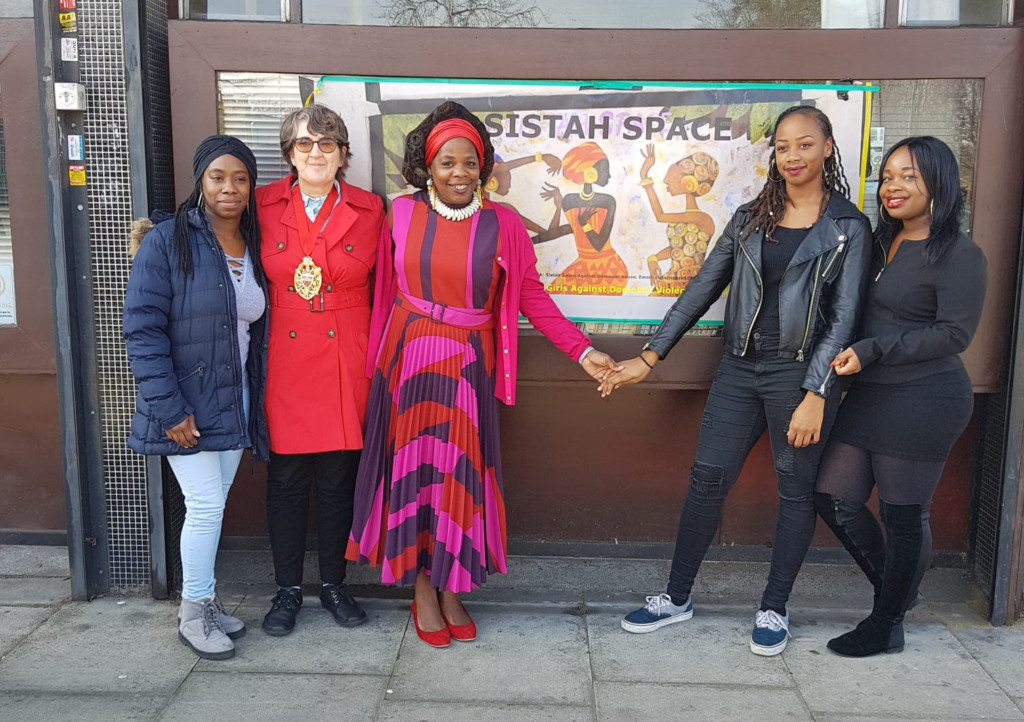
The ‘Save Sistah Space” movement began after the charity had been denied access to its space on Mare Street in Hackney. Sistah Space founder Ngozi Fulani said: “Instead of Hackney involving us as a resource, they just heap more pressure on us. It is ridiculous. Central government says stay put, so that is what we should be doing. E8 is among the highest levels of Covid, and they are still talking about moving our stuff out.” The loss of physical community spaces means that Black women and femmes are without the escape that they require from dangerous living spaces. Following their forced removal, Sistah Space announced that they would continue to “provide specialist support to victims of domestic abuse in the African and Caribbean heritage communities”, during uncertain and unprecedented times.
Alongside government cuts, community spaces like Sistah space are threatened by rampant development in London. The face of London is rapidly changing. High rise flats, bespoke gyms and luxury cafes are popping up all over the city – outpricing working-class residents and families. The precarious reality marks an uncertain future for community spaces in the capital.
In February of 2021, Sistah Space secured a new home, which they described as “not ideal, but it beats being in the streets”. The space was offered by a local charity, at a slightly reduced cost, following the ‘Save Sistah space campaign’. Although this campaign garnered over 20,000 signatures, it was not supported by Hackney Mayor Phil Glanville, who said that Sistah Space was asking for “a space which simply does not exist”. The campaign was told that granting the demands of the petition risked breaching the council’s Voluntary and Community Sector (VCS) policy. Support for Sistah Space is not a partisan issue. It exists beyond the parameters of the House of Parliament. As Sistah Space continues to show, justice, must be served both inside and outside of government.
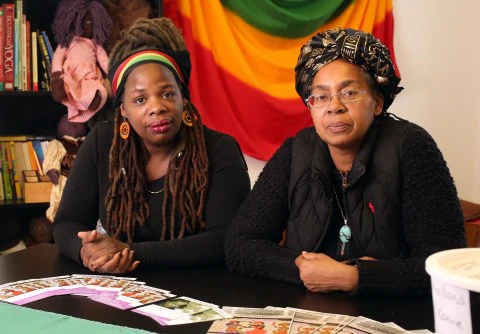
Over the past few months, Sistah Space has been mobilising the public ahead of their parliamentary debate, which took place on Monday 28th March 2022. The debate, opened by Labour MP for Erith and Thamesmead Abena Oppong-Asare, has received widespread support from several MPs, including former Shadow Home Secretary Diane Abbott and Shadow Minister for Women and Equalities, Taiwo Owatemi.
These MPs have highlighted stories of domestic violence and misogynoir by the police force, emphasising how life-saving and urgent the law is for Black women across the country. “..there’s no better way to honour the memory of Valerie and her daughter than by standing here today and advocating for this much-needed law.”, said MP Taiwo Owatemi, ending her speech.
Community leaders continue to fight for their hubs, where they come together and share in culture, language and lived experience. The walls of spaces like Sistah Space offer a refuge from the violence and misogynoir that exists in widespread, mainstream British society. There is power in the fight for Sistah Space.
We should not only band together to support community groups like Sistah Space when they are at risk, or in times of dire need. We can create a radical future where campaigning groups are empowered to freely serve their community and maintain the spaces that these communities need.
Find ways to support Sistah Space here
Follow Sistah Space for updates on their campaign here
Check out the GUAP Arts & Culture section, to discover new art, film, and creative individuals.





![ZINO VINCI’S ‘FILTHY & DISGUSTING’EP BRINGS YOU TO THE CORE OF THE ARTIST [@ZinoVinci]](https://guap.co/wp-content/uploads/2023/10/Zino-4.jpg)


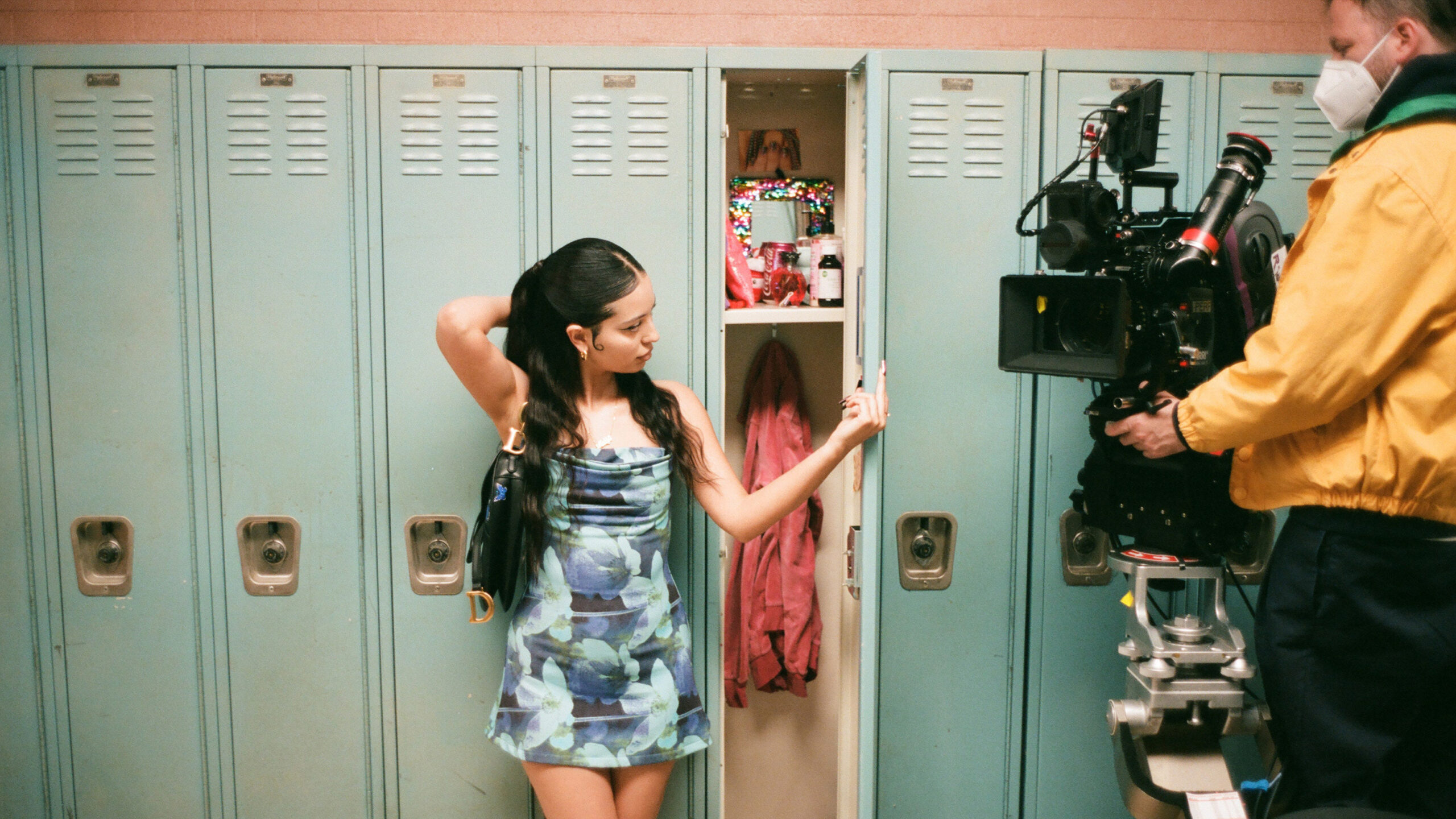


![Remel London’s [@Remel_London] “Mainstream” is a must attend for upcoming presenters!](https://guap.co/wp-content/uploads/2017/02/REMEL-LONDON-FLYER-FINAL-YELLOW-COMPLETE-1.png)